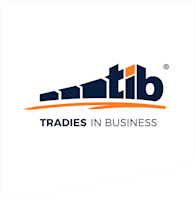Could systems be killing your business?
Is it possible to have too much of a good thing?
I come across many business owners who believe that what their business needs, in order to improve and to grow and help them achieve their goals, is more systems. Sales systems, account systems, systems for delivering products and services on time, systems for recording staff performance and more. The reality is that some systems are critical to a business’ success and others are certainly beneficial but, and here’s where I see many, many business owners get trapped – too many systems and the rigid adherence to them can literally kill a business dead. Especially when it comes to customer service.
Let me share a personal experience with you.
I’ve been a continuous business and personal customer of a large telco here in Australia for over 15 years. In that time I’ve spent tens of thousands of dollars on calls, phones, internet and other products. Apart from the lack of recognition of my loyalty as a customer (the subject of another post!) the thing that struck me about my recent experience was the difficulty in buying from this company. All I wanted to do was to upgrade my smartphone ‘handset’ and sign for another 24 month phone contract. This is probably the 4th or 5th time I’ve done this in the last 8 to 10 years and yet it doesn’t seem to be getting any easier! It’s been over a week and so far I’ve been told 3 different stories by 3 different consultants, I’ve been turned away by a local store citing “you’ll have more chance of getting your issue resolved if you call the 1 3 number” and I’ve now been advised that “there was an error when processing your original order”.
The solution? Cancel that order and go to a local store to start again. Are you kidding me?! Sadly, no. Now perhaps I’m doing something wrong but either way, I’m the customer wanting to buy from a business and it’s frustratingly difficult. If I wasn’t such a loyal customer I would leave. (Maybe that’s the problem – lack of true competition? Another post for sure!)
I’m sure you’ve had your own personal experiences like this with telcos, banks, utilities companies, airlines and so on but what’s this got to do with an over reliance on systems?
Well, I see this with many large corporations – systems are there to ensure consistency and protect employees and ensure that customers get what they expect but I also see that those same systems become something of a crutch for employees. They stop thinking for themselves (because they aren’t allowed to) and instead simply refer to the script or policy for the answers. If a problem falls outside the script or process they’ve been provided with or trained on…well…they’re stumped! They haven’t been trained to (and again, are not permitted to) make decisions and deliver customer satisfaction so instead they do what any reasonable person would do – they pass the parcel.
Instead of customer satisfaction, what these systems are actually creating is customer frustration!
You might be reading this and thinking ‘but Warrick, we encourage our people to think or make decisions’ or ‘it’s just me in the business so of course I’m going to do what’s best for our customers’ and you know what? If that’s the case, and I mean truly the case, then great stuff. You’ve no doubt got loyal customers who buy from you time and again, give raving testimonials and tons of referrals. Yes?
If not, and that’s ok, then perhaps you need to have a look at where systems have replaced good judgement, common sense and actually showing people you care.
Here’s a better example. A few years ago I was returning home from some business training in Austin, Texas with a colleague. I was sporting some torn ligaments in my knee so couldn’t walk very well. Our internal flight from Austin to LA was delayed, as was our baggage getting to the carousel. We still had to get to the terminal our return flight to Australia was departing from, some 1.5 kilometres away and there were literally only minutes before check in closed. If you’ve ever travelled via LAX you’ll know how busy, and difficult to navigate, this airport can be.
My colleague decided to go ahead to the check-in counter in the hope he could convince them to wait for us. In short, the staff member at the check-in counter literally argued with the (armed) security personnel so we could make the flight home and not end up stuck in LA for an overnight stop. That person made an exception. He didn’t blindly follow the policy or the script and as a result, I’m a fan of that business and have spent many thousands of dollars travelling with them since.
So have a look at your business. Are you relying too heavily on systems? Do your policies show customers you care about them or frustrate them? Perhaps your training system is the one that needs an overhaul so you recruit and develop more people like my friend at the check in counter?
One of my mentors, the Texas-based entrepreneur I spent time with in the anecdote above, says that “you can’t have exceptional service without making exceptions.”
Are systems killing your ability to make exceptions?
Warrick
P.S. If you want a great airline for international travel that does make exceptions, give Virgin Australia a try 😉 If you find a telco that cares about their customers and rewards loyalty, let me know. I might be ready to change soon!

